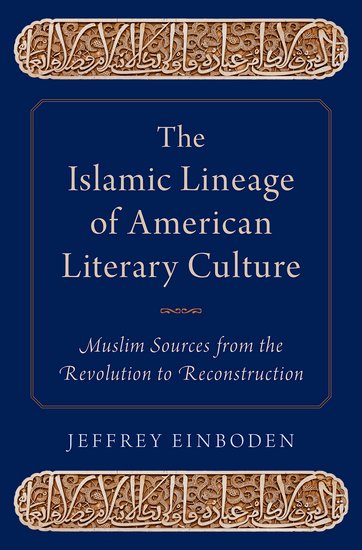
The Islamic Lineage of American Literary Culture: Muslim Sources from the Revolution to Reconstruction
Alia Yunis
Jeffrey Einboden
2016, Oxford UP, 978-0-19939-780-8, $78 hb.
Before there was even a United States, religious scholars in North America were pursuing the study of Islam and Arabic to interpret religious scriptures. Einboden, an English professor at North Illinois University, takes us from the mid-1700s to the mid-1800s, exploring the key American literary figures whose work was partly grounded in an interest in the Muslim world. He starts with 18th-century minister and avid Arabic and Hebrew reader Ezra Stiles and includes America’s first “bestselling author,” Washington Irving, who ventured into the Islamic world more than any other American figure of this period, basing himself in Andalusia for some time and writing Tales of the Alhambra (1832). Einboden’s surprise entry is Lydia Maria Child, who wrote The Frugal Housewife and An Appeal in Favor of that Class of Americans Called Africans (1833), an abolitionist text which spoke of Jo Ben Solomon, a Gambian Muslim slave sold in America.
You may also be interested in...

The Ebb and Flow of History on the Zambezi River
In tracing the past six centuries of history, historian Malyn Hewitt captures the cyclical rise and fall of the river and its people.Celebrate Women's History Month With These Reads on Women Throughout History
To help honor Women’s History Month, AramcoWorld brings you a list of 10 female-focused reads that celebrate women throughout history.
Naguib Mahfouz Medal for Literature Winner Gives Voice to Marginalized
“No one else will be destined to write a life story as squalid as mine, although it’s all true,” comments the elusive protagonist of Algerian author Ahmed Taibaoui’s noir novel.